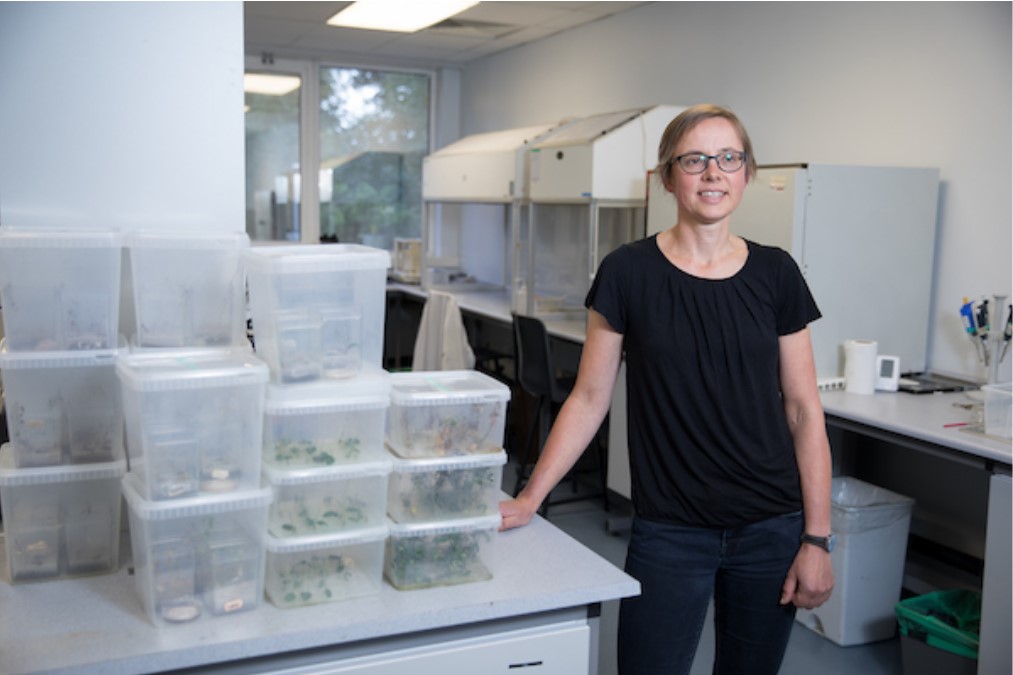In a year which has featured raging debates on climate change, Common Agricultural Policy (CAP) reform and Covid-19 – to name but a few – the past 12 months have been a roller-coaster ride for almost anyone involved in the Irish agricultural industry.
However, it was also the first year of University College Cork’s (UCC’s) brand-new Level 8 honours degree programme in Agricultural Science – which has just concluded in recent weeks.
To see how the new programme fared over the past year, and dealt with the associated ‘ups and downs’, AgriLand spoke to course coordinator Prof. Astrid Wingler.
The degree
Providing some background to the course, Prof. Wingler said: “It’s a joint degree with Teagasc, mainly with Teagasc Moorepark.
It was devised because there was a need for an agricultural science degree at UCC in Munster. Most of our students are from the Munster area.
The professor noted that the degree is mainly focused on dairy at present, due to the dairy expertise at Moorepark as well as the course’s location in Cork, a dairy heartland.
“The first year is quite science-based, to provide the students with a very strong science foundation. They take modules in all the sciences, from all the biological sciences, maths, physics, chemistry and so on.”
This, Prof. Wingler added, is complemented with modules in business, economics, human resources and agri-business management in later years of the programme.
After first year, the course becomes progressively more applied with more specific agricultural science modules, she noted – though there is a healthy amount of practical agricultural teaching in first year also.
“In first year, students do agricultural science modules where they go to Moorepark and Teagasc Clonakilty to do practical work. There’s a work placement in third year as well,” Prof. Wingler explained.
In terms of class size, 25 student places were allocated for the programme last autumn. Of these, 22 students began the course, with all of them successfully completing the year.
“They were a really good cohort of students and they were no problem whatsoever,” the course coordinator said.
Coming from a variety of backgrounds, from dairy farms to mixed tillage or beef farms to no farming background – in a 64:36 male-female ratio, the first year’s student make-up was diverse.
“We didn’t have any problems with this cohort of students; I can tell you that this was the easiest cohort of students I have come across so far,” Prof. Wingler said.
Coping with Covid-19
While the debut year of a new course can prove to be a challenge in and of itself, the added difficulties of Covid-19 quickly made themselves known midway through the second semester for college courses across the country.
Asked if these posed an added challenge to the course, Prof. Wingler said:
“I think we were quite lucky because, for us, our semesters are quite early so there wasn’t too much of the academic year left.
The students had finished their visits to Clonakilty and so on. With respect to lectures and assessments, we had to switch to doing everything online and, especially for this degree, it all seems to have gone quite smoothly.
“We were a bit concerned about internet access but the students, at least in the ag science degree, all seemed to be able to access all the teaching materials, the assessments, so it went well,” the professor said.
Outlook for autumn
Looking ahead to how the coronavirus may impact teaching in the autumn, the coordinator said:
“UCC will start to teach on September 28, so we’ve moved the start of the semester back a bit; usually we start earlier in September.
“We’re currently preparing for teaching in a slightly different situation but basically how we teach exactly depends on what the Government’s regulations are at the time.
We’re definitely open for education and preparing for whatever situation is thrown at us.
“There will probably be more electronic engagement with the students and making use of innovative teaching methods. It’s a good opportunity actually to update our teaching.”
Challenges and opportunities
Asked about the key challenges and opportunities noticed over the course of the first year, Prof. Wingler said:
“One of the chief challenges was some of the logistics – because we’re providing the transport for the students to Fermoy and Clonakilty, so organising that [was a challenge].”
In terms of opportunities, the coordinator highlighted that UCC’s background in food science and food business, as well as general sciences, mean the course is well based to teach and grow its agricultural science programme.
“The idea is not just to train students for farming but also to teach them to research, to become farm advisors, or just to go into the food industry, go into business and so on.
We’re seeing with the Covid-19 situation, people still need to eat, and that’s [why agriculture is] one of the most, not just economically important, but vital sectors to keep going under any urgent situation.
“The CAO [Central Applications Office] change of mind option – students can still choose our degree if they want to until July 1 on the CAO website.
“If they haven’t made up their minds yet, they can still do that,” Prof. Wingler concluded.
